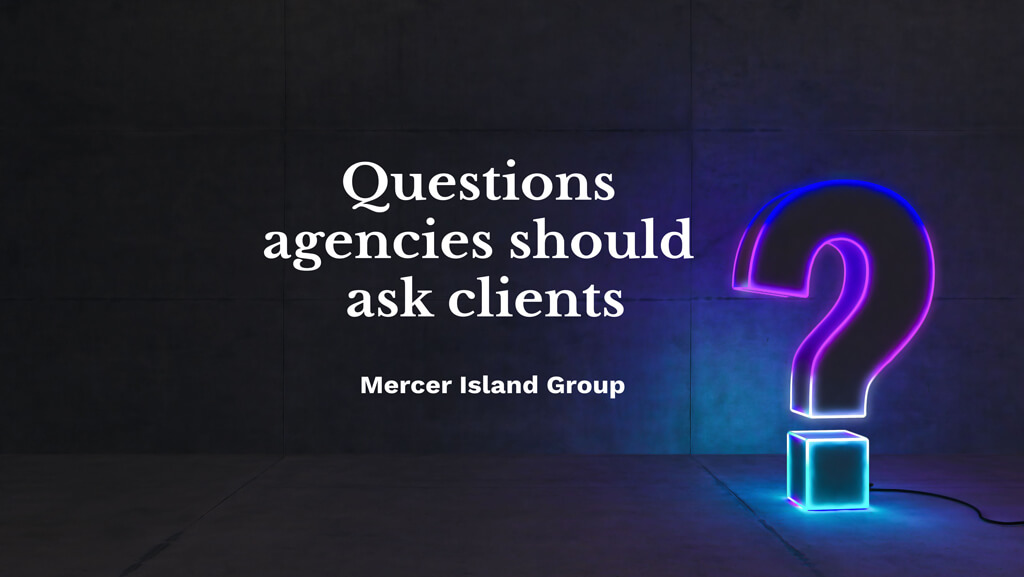Last week we discussed the key questions that clients should be asking their agencies. What questions should agencies be asking their clients?
Just as it’s never been more complex or challenging to be a marketer, it has also never been more challenging to lead an agency. And just as marketers need to get every possible ounce of impact from their marketing and agency investments, agencies need to be positioned to help deliver that impact.
To help agencies deliver that outsized impact, we’ve identified the key questions agencies should be asking clients (which are critical questions for clients to be able to answer!). What are those questions?
This question should be the starting point for any agency-client relationship. Clients don’t invest in agency support for the hours involved or the work. They have business issues they need to address. They may need to improve a challenging situation like a share or revenue decline, offset competitive threats or better connect the customer journey for greater Impact. Or they may want to take better advantage of opportunities like a new product launch or geographic expansion. When agencies understand the business issues that are most important to the client, they are much more likely to be able to really help.
How do you have business conversations that help you better understand the client’s needs? We’d be happy to discuss that with any agency.
Bonus: four evergreen questions…
1. What is your approval process, and who can approve what work?
2. What top-to-top check in cadence can you commit to?
3. How will you evaluate the agency’s work?
4. What should I know about your future business needs?
The best agencies are thought partners that bring new ideas, skills and knowledge to the table that clients wouldn’t have without them. The best clients create an environment that helps their agencies succeed.
